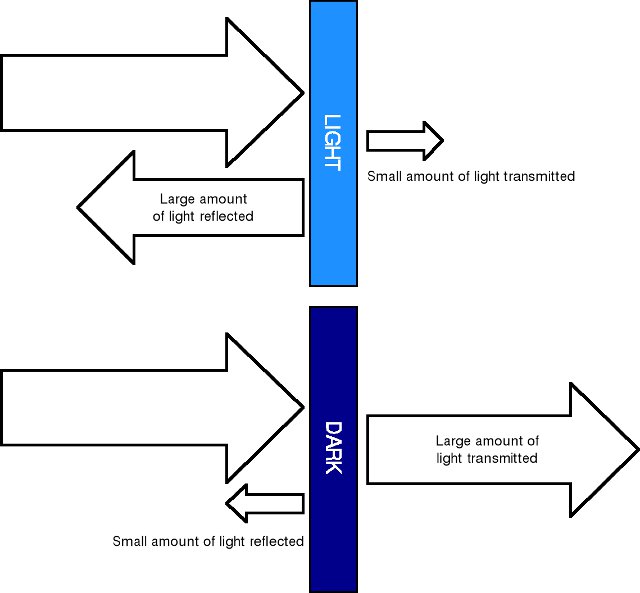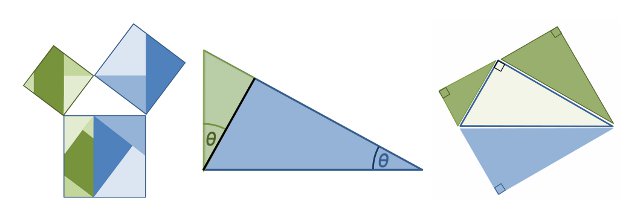I have a favourite question in physics:
“Why do things get darker when they get wet?”
This is my favourite question because the proof is so brilliantly simple, and easy to demonstrate.
Objects appear darker when wet because more light passes through them. Brightness is a measure of how much light is reflected to your eyes, and if less light is reflected then more light must be being transmitted through the material (or absorbed).

When wet, water fills in the “gaps” in the material, “channeling” light through it to the other side.
You can prove this is the case by holding a wet piece of material up to the light – it appears brighter than the surrounding material because more light passes through the material to your eyes.
